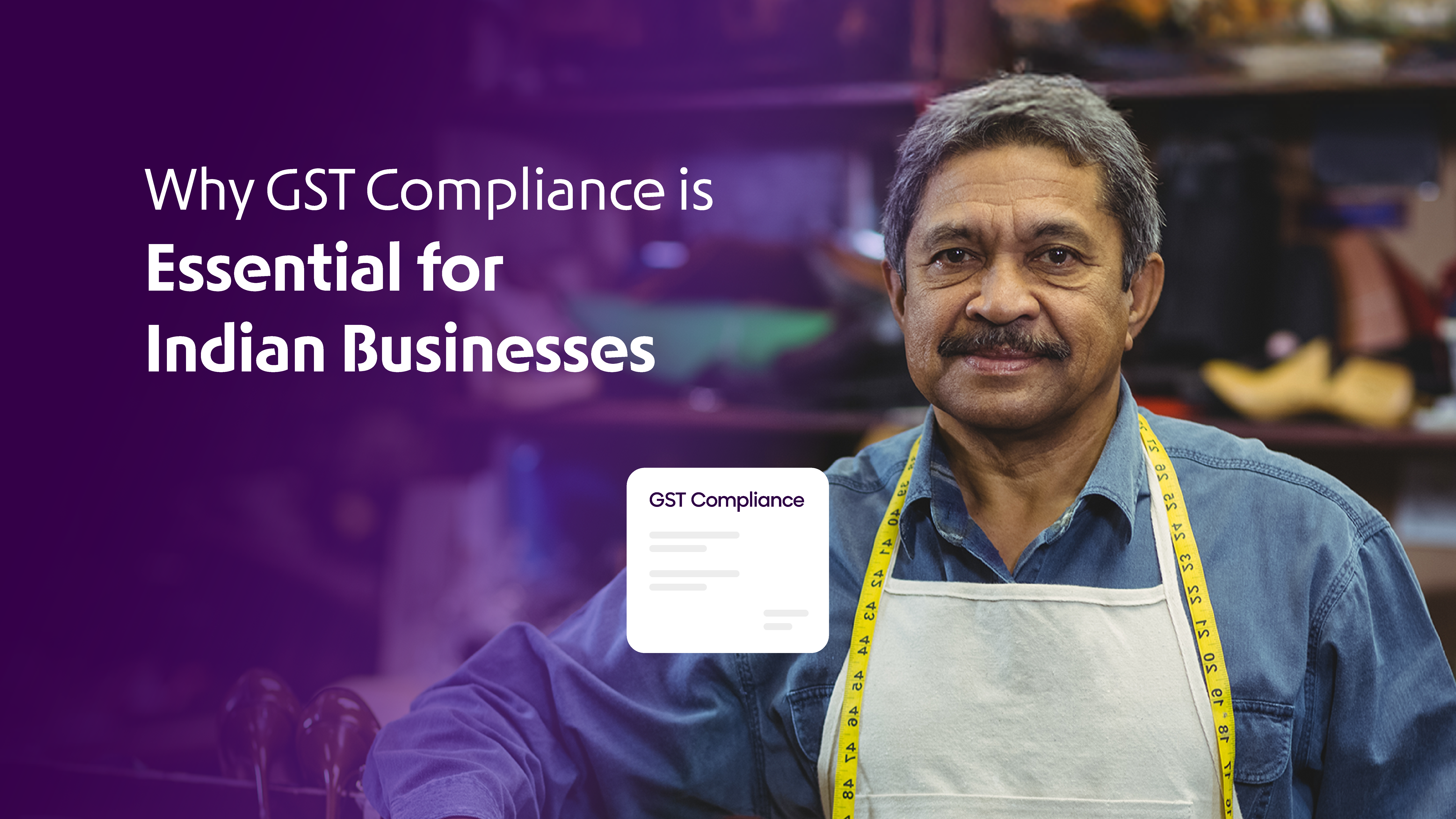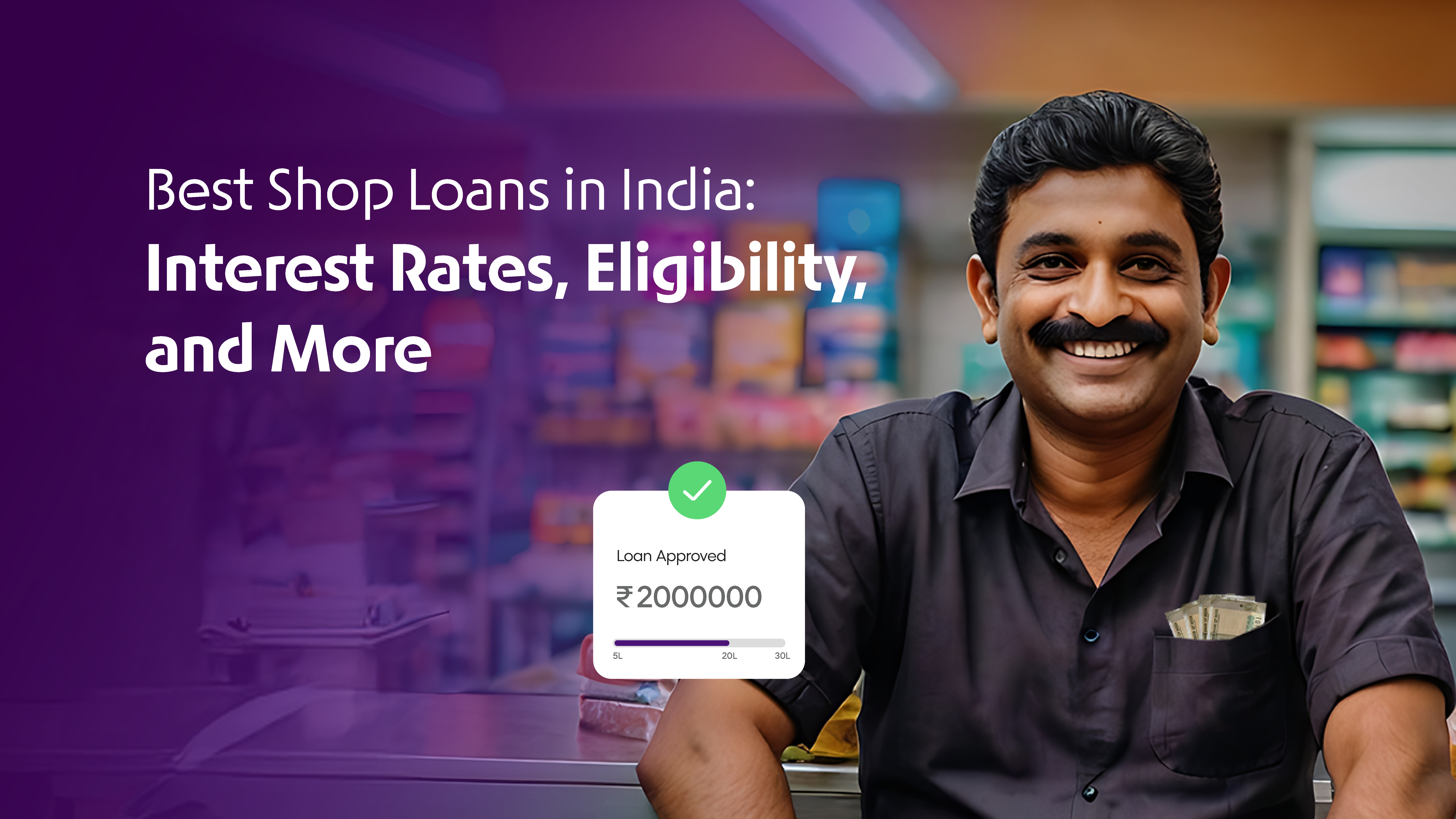When applying for a business loan, one of the most important factors that lenders consider is your creditworthiness. Creditworthiness simply refers to how likely you are to repay your loan on time, based on your past financial behavior. This can be a major deciding factor in deciding whether or not you get approved for a loan, the interest rate you’re offered, and the terms of repayment.
If you are an MSME owner looking to secure funding for your business, improving your creditworthiness can greatly increase your chances of getting a loan with favorable terms.
What do Lenders look for in a Business Loan Application?
Before applying for a loan, lenders look for several aspects of your business to understand the risk involved in lending to you. While every lender might have slightly different criteria, here are the most common factors that most lenders focus on:
- Credit Score: Your credit score is one of the most important indicators of your financial health. It reflects your ability to manage debt based on your past borrowing behavior. A higher credit score increases your chances of getting a loan and being offered better interest rates. A good CIBIL score (above 750) in India is important for securing a loan at better terms.
- Business Cash Flow: Lenders want to know if your business generates enough income to cover your loan repayments. Strong, steady cash flow is a good sign that your business is doing well and can handle loan payments without any problems.
- Profitability: Is your Business making a profit? Lenders want to see that your business is not only bringing in revenue but also making a profit. Profitability indicates the sustainability of your business and reduces the risk for lenders.
- Debt-to-Income Ratio: This ratio compares your monthly debt payments to your monthly gross income. A lower debt-to-income ratio shows that your business is managing its debts well and has enough income to take on additional debt.
- Collateral (if required): For secured loans, lenders may ask for collateral, which is an asset that you pledge to secure the loan. If you default on the loan, the lender can seize the collateral to recover the loss. Unsecured loans, on the other hand, do not require collateral, but they might have higher interest rates. However, platforms like Open Capital offer unsecured loans with affordable rates.
- Business Plan: Some lenders may ask for a business plan that outlines how you plan to use the loan and how you expect it to help grow your business. A strong business plan shows that you have a clear vision and strategy for future growth.
Key Financial Documents that Strengthen Your Loan Application
Having the right financial documents ready can significantly ease your loan application process. These documents provide lenders with a clear understanding of your business’s financial health. Here are some of the key documents you’ll need:
- Profit and Loss statement: This document shows your business’s revenues, expenses, and net income over a specific period. It helps lenders determine the profitability of your business.
- Balance Sheet: A balance sheet provides a snapshot of your business’s financial position at a given point in time. It outlines your assets, liabilities, and equity, giving lenders an idea of your business’s overall financial health.
- Cash Flow Statement: A cash flow statement shows the cash movement in your business. It highlights how well your business manages its cash to cover its operating expenses, investments, and financing activities.
- Tax Returns: Most lenders will ask for at least three years of business and personal tax returns. These documents verify your reported income and show your financial stability over time.
- Bank Statements: Lenders often request recent bank statements to confirm the current state of your cash flow. Regular, healthy deposits can strengthen your application by showing that your business generates consistent income.
How to Boost Your Business Credit Score?
A good credit score is a key factor in securing favorable loan terms. If your business credit score is not as high as you’d like, there are several strategies you can use to improve it. Here’s how:
- Pay bills on time: Late payments can have a negative impact on your credit score. Be sure to pay all your business bills, including loans, credit cards, and vendor invoices, on time. Setting up automated payments can help you avoid missed deadlines.
- Reduce Debt: High levels of debt can lower your credit score. If possible, pay down outstanding debts before applying for a new loan. Reducing your debt also lowers your debt-to-income ratio, which lenders look at closely.
- Monitor your Credit Score: Regularly check your credit report to ensure that all the information is accurate. If you spot any errors, report them immediately to the CIBIL or respective credit bureau to have them corrected. Even small errors can hurt your credit score.
- Limit Credit Enquiries: Each time you apply for credit, it results in a “hard inquiry” on your credit report, which can temporarily lower your credit score. Limit the number of credit applications you make to avoid negatively affecting your score.
- Building Positive Payment History: If your business is new and hasn’t established much credit yet, consider opening a business credit card and making small purchases that you can pay off in full each month. This will help build a positive payment history and improve your credit score over time.
OPEN Capital’s Credit Solutions and Tools to help MSMEs
At Open Capital, we understand that securing a loan can be challenging for MSMEs, especially if you’re still working on building your credit profile. That’s why we offer a range of credit solutions and tools to make the process easier and more accessible.
- Flexible Loan Options: Open Capital offers a variety of loan options designed specifically for MSMEs. Whether you’re looking for a secured or unsecured loan, we provide flexible terms that meet your business’s needs, even if you don’t have a perfect credit score.
- Affordable Interest Rates: We know how important it is for small businesses to manage their finances carefully. That’s why we offer competitive interest rates that won’t burden your business. Our goal is to make borrowing affordable so that you can focus on growth, not just repayments.
- Quick Loan Approval: At Open Capital, we prioritize speed and efficiency. We aim to approve loans quickly, so you can get the funds you need in just a few days. This allows you to take advantage of business opportunities without delay.
- Minimal Documentation: We understand that business owners don’t have time for complicated paperwork. That’s why our loan application process is simple and straightforward, requiring minimal documentation. This helps you get through the process faster and with less stress.
Improving your creditworthiness is essential to securing a business loan with favorable terms. By understanding what lenders look for, keeping the necessary financial documents ready, boosting your credit score, and taking advantage of the tools and credit solutions available at Open Capital, you can increase your chances of getting the loan your business needs.
Whether you’re applying for your first loan or seeking better terms on an existing one, Open Capital is here to help. With a simplified loan process, competitive rates, and expert support, we’re committed to empowering MSMEs to thrive in today’s business landscape.
Apply today and take the next step toward securing the financial resources your business needs to grow!



